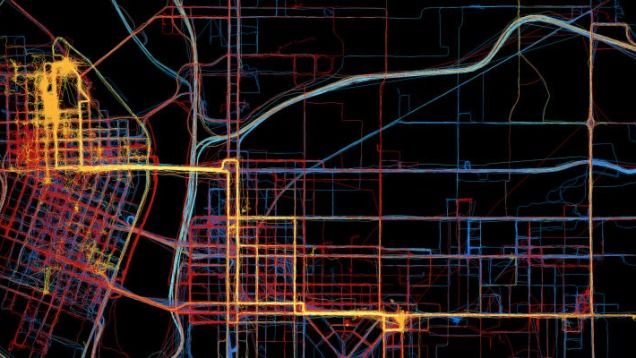GPS is an utterly pervasive and wonderful technology, but it’s increasingly not accurate enough for modern demands. Now a team of researchers can make it accurate right down to an inch.
Regular GPS registers your location and velocity by measuring the time it takes to receive signals from four or more satellites, that were sent into space by the military. Alone, it can tell you where you are to within 30 feet. More recently a technique called Differential GPS (DGPS) improved on that resolution by adding ground-based reference stations—increasing accuracy to within 3 feet.
Now, a team from the University of California, Riverside, has developed a technique that augments the regular GPS data with on-board inertial measurements from a sensor. Actually, that’s been tried before, but in the past it’s required large computers to combine the two data streams, rendering it ineffective for use in cars or mobile devices. Instead what the University of California team has done is create a set of new algorithms which, it claims, reduce the complexity of the calculation by several order of magnitude.
